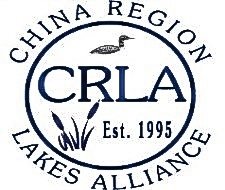Webber Pond Fish Kill
Thanks to Bill Puddicombe for reaching out to Maine Dept. of Inland Fisheries & Wildlife (IFW) and for sharing this email that he received:
My name is Jason Seiders and I’m the Fisheries Resource Supervisor for central and midcoast Maine, with the Maine Department of Inland Fisheries and Wildlife. I’m writing to provide you with some information in reference to our ongoing work related to the recent fish kill on Webber Pond. As you’re well aware, numerous fish have been found dead in recent weeks and it appears to be pond-wide. Our staff have visited the pond multiple times to collect water quality information and to collect specimens for our fish pathologist. The ultimate cause of fish mortality appears to be high levels of parasitization by a protozoan called Chilodonella. Chilodonella is found throughout Maine and is usually relatively benign to fishes, unless the fish have undergone elevated levels of stress. Stress acts an immunosuppressor to fish, and the causes of stress include a wide variety of issues. Since this event seems to involve almost exclusively adult largemouth bass, it is unlikely to be anything related to a discharge or point source of pollution. Those types of events would typically kill indiscriminately, not just one life stage of one species. Some likely causes of stress to adult largemouth bass in Webber Pond include: high fish numbers, rapid changes in water temperature or dissolved oxygen levels, and spawn and pre-spawn stress. The actual cause of the initial stress may never be known. I realize that an event such as this is disturbing. Fish kills like this are not uncommon for central Maine waters; this one is quite similar to one experienced in the Cobbosseecontee drainage a few years ago. For more information on fish kills please read this blog article written by our fish pathologist back in 2020 found at https://www.maine.gov/ifw/blogs/mdifw-blog/when-be-concerned-about-finding-dead-fish-maines-lakes-ponds-and-rivers-summer
Webber Pond is a very productive warm water fishery, one that we’ve often called a “bass factory”. Webber Pond provides outstanding habitat for warm water fishes such as largemouth bass, which will likely speed along any recovery to the population.
While numerous bass have perished during this event at Webber, this will not cause the entire population to be wiped out. Animals that feed on the bass will be unharmed because the identified protozoan is harmless to wildlife. Our staff will continue to monitor Webber Pond to assess potential impacts to the bass population in the short and long term. If you have any additional questions or concerns, I encourage you to contact me directly and I’ll help as best I can. Dwayne.J.Seiders@maine.gov
